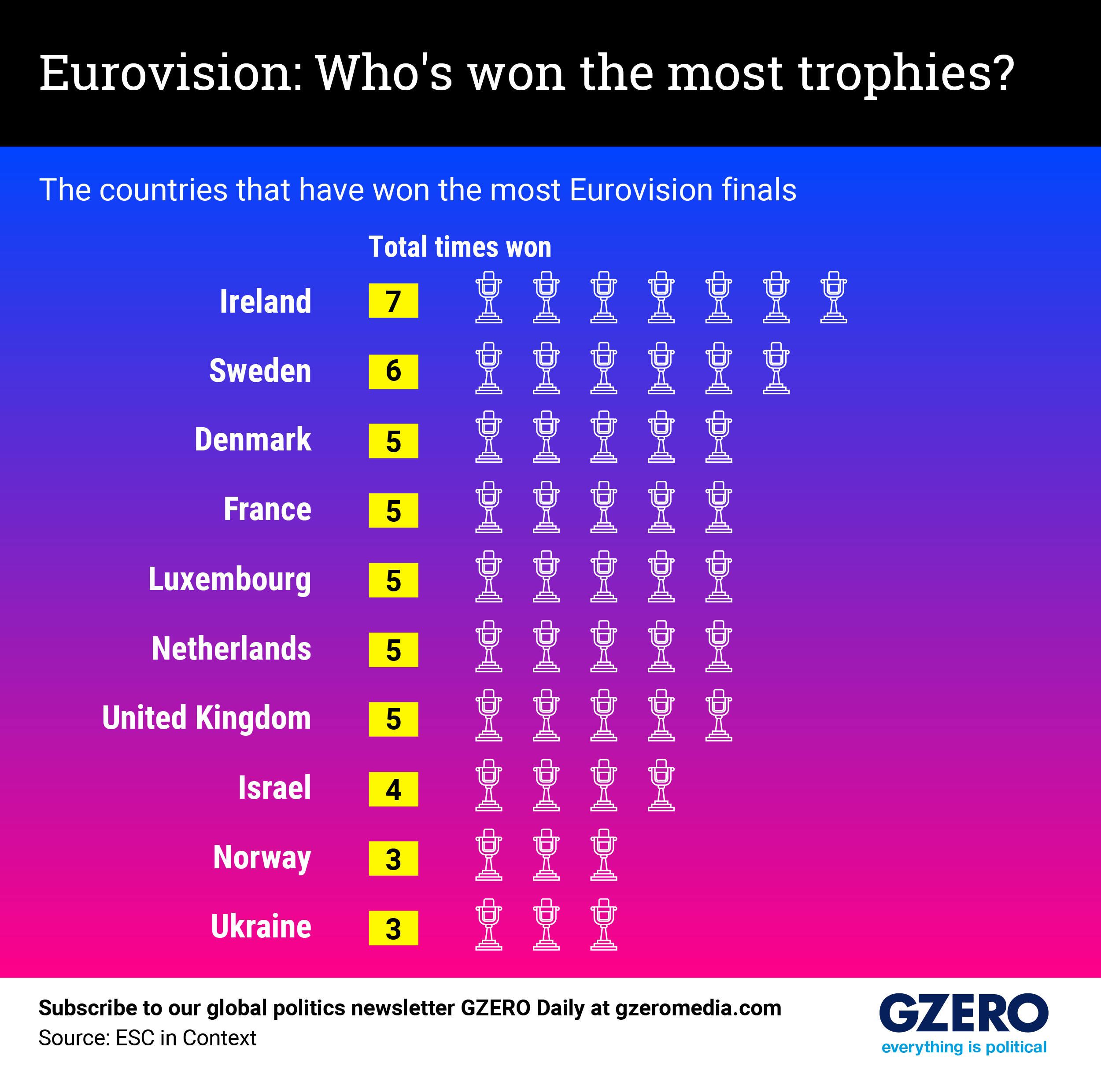The Graphic Truth: Eurovision – beating swords into microphones, sort of
Eurovision – you either love it or you hate it. And if you love to do either, then this is your moment. Saturday marks the Grand Final of the 2023 edition of the song contest, which pits the nations of “Europe” against each other in an annual battle of song, spectacle, and kitsch. The event began with just seven countries in the 1950s as a way to bolster Western European unity and channel the continent’s nationalistic urges into a more cheerful kind of competition.
In the decades since, it’s expanded to nearly 40 nations – including some that aren’t geographically in Europe – and while it reliably produces dreadful earworms, it’s also turned up some real stars: Olivia Newton-John, ABBA, and Céline Dion, for example, all came up through Eurovision.
It’s also produced plenty of political intrigue: Moscow and Kyiv, for example, have traded darts over each other’s acts since 2014 (Ukraine has won Eurovision twice since Putin first invaded Ukraine that year), and while this year’s contest should’ve (by tradition) gone off in Ukraine, home of last year’s winners, it’s being held in Liverpool, England, instead because of the Russian invasion. Russia, of course, has been banned.
Here’s a look at which countries have won the most Eurovision finals over the years. Of these, only the Netherlands and France were part of the first competition, and Ukraine is the only country to have won three times in the 21st century.
